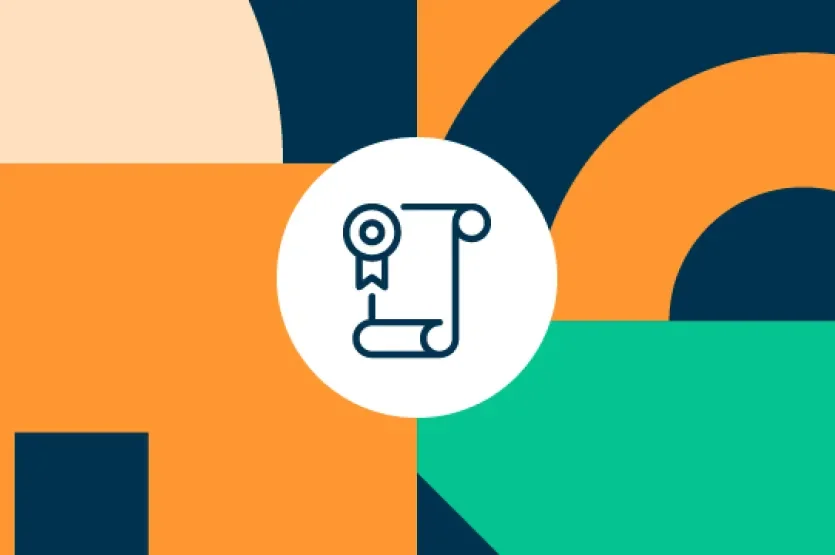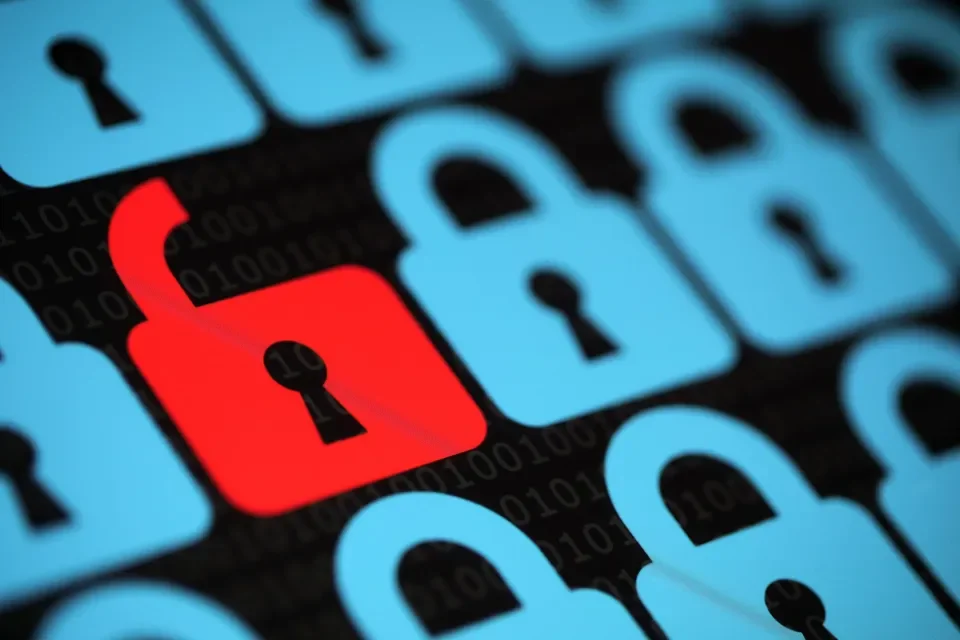Overview
The European Master in Law, Data and AI (EMILDAI) is a joint master programme (level 9 on the Irish National Framework of Qualifications) accredited by Dublin City University, Ireland, and fully recognised across the EU. EMILDAI students will obtain a joint degree by study track, depending on the area of specialisation they decide to pursue (Law/Computing; Data Governance/Cybersecurity).
Why DCU
DCU People

Edoardo Celeste is an Assistant Professor of Law, Technology and Innovation at the School of Law and Government of Dublin City University.
Read more about Edoardo Celeste
Careers & Further Options
Careers
The European Master in Law, Data and Artificial Intelligence (EMILDAI) will attract both recent undergraduates and those already established in their careers. The knowledge and skills you acquire through this programme are highly sought by law firms, tech companies, the compliance sector, research organisations and across multiple government departments.
Graduates seek work in a variety of government departments, including national data protection authorities, health authorities, ministries, military corps and universities. Others may gravitate toward the private sector as many large firms, working across a range of services, continue to expand their privacy, data protection, AI and cybersecurity teams. These include, but are not limited to, financial services companies, law and accountancy firms and consultancy firms.
Entry Requirements
All entry requirements should be met at the time of the application.
All EMILDAI students should possess 1) a relevant degree and 2) an appropriate language proficiency level in English and either French or Spanish. If you have doubt on any of the following please visit the programme website https://emildai.eu/ or contact us via email.
Relevant degree:
Computing stream students: Applicants must have a H2.2 Undergraduate Honours degree or equivalent qualification in Computer Science, Computing, Computer applications or a related discipline. Candidates with significant experience in the software development sector in addition to an Honours primary degree in some other discipline, may also be considered for entry in accordance with DCU’s Recognition of Prior Learning Policy.
Law stream students: Applicants must have achieved a H2.1 Undergraduate Honours degree or equivalent qualification in law or other degree which includes law as a significant component. Candidates with significant experience in the legal and policy sector in addition to an Honours primary degree in some other discipline, may also be considered for entry in accordance with DCU’s Recognition of Prior Learning Policy. In that case, students will have to satisfy the specific entry requirements established by the University of Pisa for students without a law degree.
Data Governance Track (France): Applicants spending part of the second year at Avignon Université, who are non-native speakers of French, should demonstrate that they possess at least a level C1 CEFR French language proficiency certificate or proof of equivalent experience (e.g. a previous degree taught in French).
Cybersecurity Track (Spain): Applicants spending part of the second year at the Universidad de León (Spain), who are non-native speakers of Spanish, should demonstrate that they possess an appropriate level of Spanish language proficiency (e.g. a Spanish language proficiency certificate or a previous degree taught in Spanish).
Language level:
All students: International candidates who are non-native speakers of English must satisfy the University of their competency in the English language. More information about DCU's English language requirements can be found here.
Scholarship opportunities:
The EMILDAI programme annually offers a series of Full Scholarships (covering Tuition Fees and offering a stipendium of €1400/month) and full and partial Fee Waivers. For more information please visit https://emildai.eu/admissions/scholarships-and-fee-waivers/
Due to the specialist nature of this programme, additional criteria may be used to assess suitability to undertake this programme. For further information, please contact the Programme Chair using the contact details above
• Recognition of Prior Learning (RPL) applicants are required to submit a cover letter along with their application under the Transcripts section of the portal, affirming their intent to apply for RPL. For more information on RPL see here.
Programme Structure
The European Master in Law, Data and Artificial Intelligence (EMILDAI) offers a highly integrated, multilingual and interdisciplinary curriculum, which is articulated into two years (120 ECTS). EMILDAI students will receive a joint master’s degree awarded by the partner universities they attend (joint degree ‘per track’). Students are required to know at least two languages: either English and French or English and Spanish.
Students are divided into two Study Streams: Law and Computing, depending on the student’s disciplinary background and professional experience.
See link to EMILDAI website for explanation of the Law and Computing streams
Year 1 aims to offer students a comprehensive introduction to the core themes related to law, data and AI. Students of both streams will spend semester 1 and 2 at DCU completing an ‘Introduction to Law, Data and AI’.
Year 2 aims to provide students with a specialisation in the fields of data governance, cybersecurity and AI law and ethics.
Law Stream students will specialise in either:
- Data governance at Avignon Université (Study Track A, taught in French)
- Or cybersecurity at Universidad de León (Study Track B, taught in Spanish) in semester 3,
- In semester 4 (taught in English), Track A and B, will gain an in-depth understanding of AI Law and Ethics at Università di Pisa.
Computing Stream students will spend both semester 3 and 4 specialising in either:
- Data governance at Avignon Université (Study Track A, taught in French)
- Or cybersecurity at Universidad de León (Study Track B, taught in Spanish)
Fees and Funding
Fees
How To Apply
All Applicants must apply through DCU's Student Application Portal which is available here. Here's a quick step by step guide if you need help with your application. Additional information is available on https://emildai.eu/
Applicants will be required to provide the following information/documents:
All entry requirements and supplementary documents must be provided at application to be considered for a place on this programme.
• A scanned copy of your passport.
• Electronic copy of the diplomas and academic transcripts of your qualifying undergraduate degree (if the degree is not in English a certified translation in English will be required)
• If applicable, evidence of competence in the English language as per DCU entry requirements. Please see http://www.dcu.ie/registry/english.shtml
• Evidence of language competence in French or Spanish, depending on which Study Track you are applying to (please see below)
• A 500 – 750 word personal statement including: an explanation of why you wish to undertake the EMILDAI programme; an analysis of what in your record and experience makes you suitable for the EMILDAI programme; an illustration of the impact which you expect EMILDAI to have on your future careers
• Email addresses of two referees (referees will be contacted via email and asked to provide a reference letter).
• Evidence of language competencies
English:
• If you are a native English speaker, you can tick the relevant box in the application portal and you will not need to submit any proof of language competence.
• If you have completed a degree through the medium of English, you can select this option in the drop-down menu on the application portal, and upload as a supplemental item a copy of your study certificate stating that the language of study was English.
• If you are not a native English speaker and you didn’t complete a degree in English, you must attach as a supplemental item to your application a language certificate awarded within two years prior to the start date of your DCU programme. Please see here the language certificates accepted by DCU.
French:
• If you are a native French speaker, you must upload a Microsoft Word document as a supplemental item to your application stating that your native language is French. This might be checked by academic reviewers through a language interview.
• If you have completed a degree through the medium of French, you must upload as a supplemental item to your application an original copy of your study certificate in French.
• If you are not a native French speaker and you didn’t complete a degree in French, you must attach as a supplemental item to your application a level C1 CEFR French language proficiency certificate including an assessment of writing, listening and speaking skills.
Spanish:
• If you are native Spanish speaker, you must upload a Microsoft Word document as a supplemental item to your application stating that your native language is Spanish. This might be checked by academic reviewers through a language interview.
• If you have completed a degree through the medium of Spanish, you must upload as a supplemental item to your application an original copy of your study certificate in Spanish.
• If you are not a native Spanish speaker and you didn’t complete a degree in Spanish, you must attach as a supplemental item to your application a Spanish language proficiency certificate including an assessment of writing, listening and speaking skills.
• If you are not a native Spanish speaker and you didn’t complete a degree in Spanish, you must attach as a supplemental item to your application including either a Spanish language proficiency certificate (all levels are accepted but it is recommended to have at least a B1 level certificate) or an explanation of how you know Spanish. In both cases the student selection committee reserves the right to interview applicants to verify their level of language proficiency.
Application Key Dates
Applications for the 2025-2027 edition of EMILDAI will open on October 21st.
- Closing date for round one applicants is 12th January 2025 All entry requirements and supplementary documents must be provided at application to be considered for a place on this programme.
Note: Applicants who require a study visa for the purposes of studying at DCU, are advised to apply as early as possible.
All entry requirements should be met before the commencement of the programme.
Application Queries
For EU applicant queries, please visit https://www.dcu.ie/registry/eu-postgraduate-taught-admissions or email postgraduateadmissions@dcu.ie
For non EU applicant queries, please visit https://www.dcu.ie/registry/international-admissions-undergraduate-and-postgraduate or email internationaladmissions@dcu.ie
Queries
Queries from EU and non-EU applicants should be directed to info-emildai@dcu.ie.
Commencement of Programme
The programme commences in September 2025
Life On Campus
At DCU, our students can expect a unique campus experience. We are known for our excellent teaching and learning facilities, our active clubs and societies, and our great social and sporting facilities. All this makes DCU an exciting place to be.
DCU has three academic campuses; Glasnevin, St. Patrick’s and All Hallows (both in Drumcondra), all close to Dublin City centre.
They can be reached by public transport, Dublin Bus and Bus Éireann, with our Drumcondra campuses a ten minute walk from Drumcondra Train Station. Glasnevin is a 20 minute walk from St Patrick’s and All Hallows. They are also linked by Dublin Bus.
Each campus has a library (O’Reilly, Cregan and Woodlock Hall), study spaces, restaurants, and on-campus residencies. There are sports facilities on Glasnevin and St. Patrick’s, and there is a dedicated sports campus, St Claire’s, located near Glasnevin on the Ballymun Road.
DCU’s 19,000 students have access to exceptional teaching and learning facilities across our three academic campuses.
These include modern learning theatres, research centres, a new media and TV studio, radio/podcast studios, computer suites and advanced labs in the areas of Languages, Engineering, Physics, Chemistry and Biotechnology, as well as a Sports Performance centre and a training hospital ward. In 2021, we opened our first virtual reality ‘Leadership Lab’, which is located in our Business School.
We continue to improve and update our facilities. For example, construction of a new world-class STEM facility is underway on the Glasnevin campus. With capacity for an extra 3,000 STEM students, this facility will advance DCU’s international reputation for excellence in science and health, computing and engineering disciplines.
Studying in DCU isn’t just about course work. The university is rich in student life and activities.
There are more than 140 clubs and societies for students in DCU, with ‘Clubs & Socs’ days taking place on both the Glasnevin and Drumcondra campuses at the start of the academic year. They span everything from rugby to rock climbing, anime to jazz.
For many students, sport is an important part of the DCU experience. DCU’s Sports Complex boasts a 25 metre swimming pool, fitness centre gym, all-weather pitches and squash courts, as well as soccer, GAA and rugby pitches. DCU Dóchas Éireann, the university’s GAA club, is the largest third level Gaelic Games club in the country. Meanwhile, DCU Athletics has been Ireland’s highest achieving university club for many years. And DCU has dozens of other clubs to get involved in, from Archery to Weightlifting.
The Glasnevin campus is home to our purpose built, state-of-the-art student centre, The U, which serves the needs of a rapidly growing student body. Here, you will find the Student Leadership and Lifeskills Centre, performing arts and cultural spaces for students and the wider community, and the Entrepreneurship and Innovation Hub. Also located on our Glasnevin campus is The Helix, our renowned performing arts centre.
On our St Patrick’s campus, we have the Java Student Hub, a vibrant, warm and welcoming space where students can meet for coffee, play music, use the projector to watch events, or just relax. The walls of the Java Hub were designed based on the cultural history of St Patrick’s Campus, including the special references to the notable sporting history and history of the arts.
We have a number of academic, professional and social supports for students.
Student Advice & Learning Skills Centre - Offers a wide range of supports and services to students and advice
The Writing Centre - drop-in writing workshops for students through the academic year
Maths Learning Centre - provides maths support for students of all ability levels with maths modules
Student Learning - facilitate the transition from passive to active learning for students at DCU, by teaching study skills, nurturing critical thinking and building student confidence.
Careers work with students to help them on their professional journey into graduate employment.
Our student support team offers a comprehensive support programme, helping students make that all important transition into university life and focusing on building confidence and skills which are key to success at third level.

DCU Glasnevin Campus
FAQs
Do I need to have a computer or law degree to do this course?
Yes, in order to apply for this programme you need to have a relevant degree. Detailed information about accepted degrees can be found here.
Is there a language requirement for this course?
Yes, in order to apply for this programme you need to be proficient in at least two languages: English and French or English and Spanish.
Which documents can I provide to prove my English language competence?
If you are a native English speaker, you can tick the relevant box in the application portal and you will not need to submit any proof of language competence.
If you have completed a degree through the medium of English, you can select this option in the drop-down menu on the application portal, and upload as a supplemental item a copy of your study certificate stating that the language of study was English.
If you are not a native English speaker and you didn’t complete a degree in English, you must attach as a supplemental item to your application a language certificate awarded within two years prior to the start date of your DCU programme. Please see below the language certificates accepted by DCU:
- Duolingo English Language Test (DET): Postgraduate applications for the Faculty of Humanities and Social Science will be considered with a minimum DET score of 120 and a score of at least 110 in each subscore.This test can be taken online, at any moment and results are sent in 2 days.
- IELTS ACADEMIC: Overall score 6.5 or above and 6.5 in writing and speaking. Other sections scores 6.0 or above. Students with a composite IELTS 6.5 score or equivalent need a score of at least IELTS 6.5 in writing and speaking.
- TOEFL: Overall score 580 or above and all sections scores 55 or above.
- CBTOEFL: Overall score 237 or above and all section scores 21 or above.
- TOEFL iBT: Overall score 92 or above and all section scores 21 or above.
- English Test for Academic and Professional Purposes (ETAPP): C1
- Cambridge Certificate of Proficiency in English (CAP) Postgraduate: Overall score of 180 with a minimum of 176 in Speaking and Writing and 169 in Listening, Reading.
- Cambridge Certificate of Advanced English (CAE) Postgraduate: Overall score of 180 with a minimum of 176 in Speaking and Writing and 169 in Listening, Reading.
- Pearson Test of English (PTE Academic): 63 (with a minimum of 63 in speaking and writing and 59 in listening and reading).
Which documents can I provide to prove my French language competence?
If you are native French speaker, you must upload a MS word document as a supplemental item to your application stating that your native language is French. This might be checked by academic reviewers through a language interview.
If you have completed a degree through the medium of French, you must upload as a supplemental item to your application an original copy of your study certificate in French.
If you are not a native French speaker and you didn’t complete a degree in French, you must attach as a supplemental item to your application a level C1 CEFR French language proficiency certificate including an assessment of writing, listening and speaking skills.
Which documents can I provide to prove my Spanish language competence?
If you are native Spanish speaker, you must upload a MS word document as a supplemental item to your application stating that your native language is Spanish. This might be checked by academic reviewers through a language interview.
If you have completed a degree through the medium of Spanish, you must upload as a supplemental item to your application an original copy of your study certificate in Spanish.
If you are not a native Spanish speaker and you didn’t complete a degree in Spanish, you must attach as a supplemental item to your application including either a Spanish language proficiency certificate (all levels are accepted but it is recommended to have at least a B1 level certificate) or an explanation of how you know Spanish. In both cases the student selection committee reserves the right to interview applicants to verify their level of language proficiency.
How can I apply for a scholarship or a fee waiver?
If you submit your application within the first round of applications, you will be automatically considered for a full scholarship or a fee waiver. For more information see here.
Do I need a visa?
If you are not from an EU-EEA-CH country you may need a visa to study in Ireland, France, Spain or Italy. Read here for more information.
If I have not yet graduated, can I be considered for the programme?
No, all entry requirements must be met at the time of the application. Please note that in order to apply you need to have a Bachelor degree. If you are completing a master degree, you can apply for the programme as you already have a bachelor degree.
What do you mean by a 2.1 or 2.2 Undergraduate Honours degree?
At DCU, students are classified according to their final average grade. Top students scoring more than 70% are considered to have a ‘first class honours degree’. Students scoring between 60%-69% inclusive are considered to have a ‘2.1 (second class, grade I) honours degree’. Students scoring between 50%-59% inclusive are considered to have a 2.2 (second class, grade II) honours degree. The DCU admission team will verify whether your original degree satisfies the entry requirements of the EMILDAI programme.
How are reference letters submitted?
Once you enter your referee details, they will be contacted and asked to submit their reference letter on your application. The reference should include their title and the name of the institution/company they work with. If your referee encounters issues entering their reference on the application portal, please contact us.
Can I apply if I have already benefited from a scholarship from another Erasmus Mundus Joint Master (EMJM)?
Unfortunately, for prospective students that have already benefited from an Erasmus Mundus Joint Master (EMJM) scholarship, you are not eligible to apply for an additional EMJM scholarship.
Is DCU all one campus?
DCU is a multi campus university - the Glasnevin, St Patrick's and All Hallows campuses. The St Patrick's campus is where the Education courses are taught and some of the subjects from the BA Joint Honours degree. There is a 20-25 minute walk between the campuses but there are buses and bikes available to go between them also.
Click here to see maps of all of our campuses
If I'm studying on the St Patrick's campus, can I use the library and sports centre on the Glasnevin campus?
Yes, all facilities such as sports and accommodation are open for all DCU students to avail of.
Are there libraries in DCU and if they have wifi and work stations?
We have a brand new state of the art four floor library on our St. Patrick's Campus which complements the existing library on the Glasnevin campus. There is free wifi, work stations as well as desktop computers.
Does DCU provide accommodation?
DCU does have on-campus accommodation for undergraduate and postgraduate students, and you can find out more and apply via the Accommodation Office webpage.







